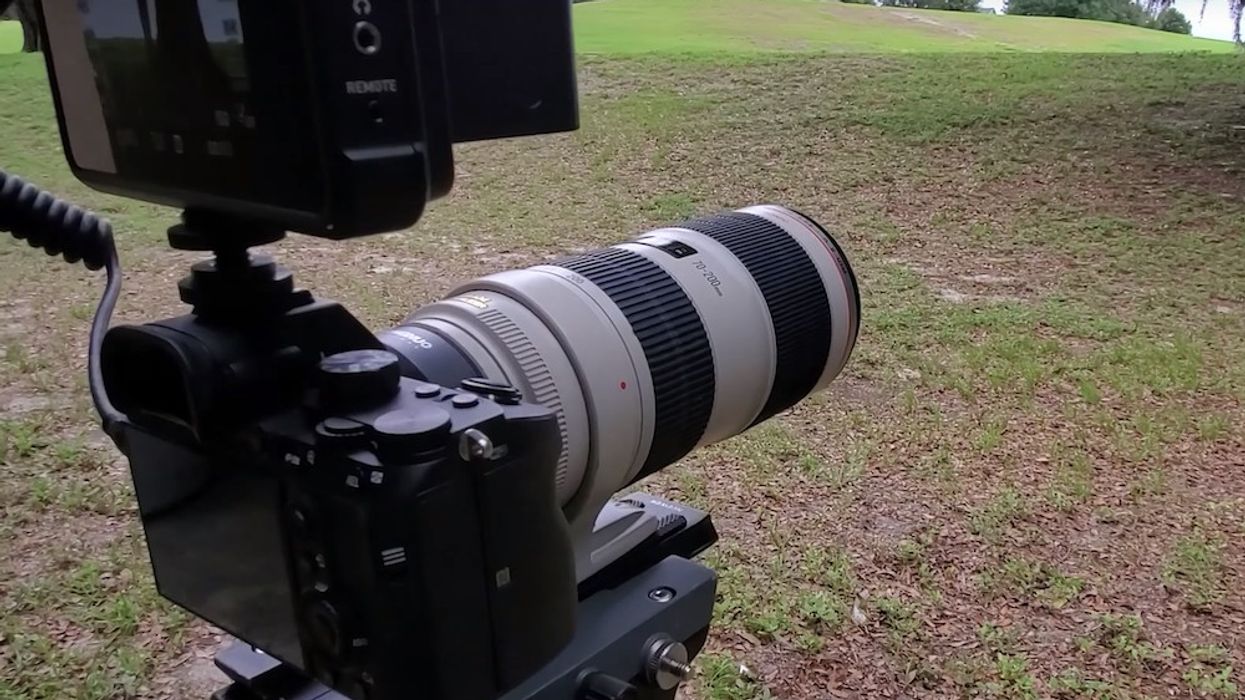These Budget Lens Adapters Are Great, But There's a Catch
With cheap lens adapters, autofocus tracking can lose performance and drop in-between frames.

There are times when you want to try out a great lens, but your camera has the wrong mount. That's where a great lens adapter can come in handy. But if you're on a budget, low-cost lens adapters under $300, like the Sigma MC-11, the Fotodiox Adapter, or even an $89 EF-E II adapter from Yongnuo, open up a ton of options.
However, with all the features affordable adapters provide, are there any drawbacks? Well, according to Dan Watson, you might want to be wary of autofocus performance.
In this video, Watson takes a look at these three lens adapters to see if they are worth keeping in your camera bag as a low-cost adapter option.
Since today's modern lenses are all autofocus centric, it's vital for them to be able to communicate with those lenses, and an adapter must be able to pass through and transmit any instructions to the lens and back.
Watson started with the Yongnuo EF-E II adapter, and while it did manage to work with Sony lenses on his Canon camera pretty well when trying to track a moving target, there became an issue.
Credit: Learning cameras
The Yongnuo would drop tracking in-between frames during servo mode as the subject moved. Forcing the lens to reacquire the subject constantly. The cameraman can overcome this by locking focus on the subject, but that will only work in one plane of focus. If the subject moves towards or away from the narrow field of focus that is locked into place, then the focus has to be reacquired. This may not be an issue if you're doing a two-person setup, but if you're shooting a wedding, where you're always on the move, that's going to be a problem.
Watson found the same issue with the FotoDiox lens adapter, but the SIGMA managed to experience no issues, and Watson said it worked just as well as a native lens would without it.

Watson then repeated the experiment using a Sigma lens, and things got even worse. Watson said he got absolutely no performance with the Yongnuo using a Sigma Lens. The Yongnuo offered no autofocus performance, and even in manual focus, the issues were there.
The issue was compounded on the FotoDiox, while the Sigma MC-11 had no issues,

Watson is happy that the MC-11 can be updated through firmware, future-proofing it somewhat. The Yongnuo is the same way, and over time, a firmware update can perhaps address those shortcomings. Sadly, the FotoDiox doesn't, so it ends up being a dead end.
Of the three, paying a little more for the Sigma MC-11 is your best bet, but at the end of the day, it's best to stay native with lenses when you can. If it's necessary, however, and you stay in your lane with a lens that works, then a lens adapter can be an affordable option. But you get what you pay for. Pay a little more, and frustrate a lot less. Or, consider renting the lens instead.
Source: Dan Watson












